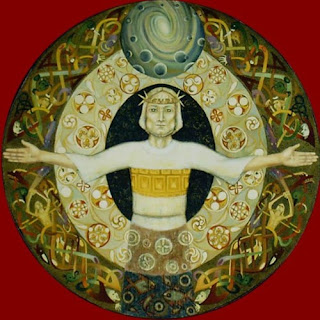Confirmation Class # 2 – Beginning to think
about baptism
Last week I wrote a little about what
it means to be a Christian. I didn’t, of course, say everything about being
Christian, but gave you all a chance, I hope, to think about what it might mean
to you to be a Christian. This week I want to write a little about baptism.
All of you, the ones I know, have
been baptised, and some of you only in very recent times: what a great
celebration that was. Baptism is sometimes described as the gateway into the Christian
church, but, it does, have deeper meanings than that as well. Baptism is the means by which we are united
with Jesus Christ in his death and resurrection, and our sins forgiven.
The last statement about sin is a
difficult one for many people. Many people do not like to think as themselves
as sinners. Being a sinner sounds like something incredibly negative to them,
or, at the least, should describe people who murder or steal and things like
that. However, we understand sin to be that which separates us from God. The
bible tells a picture story to illustrate this, and it is a story that we all
know fairly well (The Book of Genesis chapter 3: first book in the bible).
Adam and Eve were in the garden made
by God and they were happy and had everything they needed. Coaxed by the
serpent, Eve encourages Adam to taste of the one fruit, forbidden by God, from
the tree of life. They ate the fruit and then their eyes were open and they saw
who they were and how they differed from God: they fell from perfection. After
this they were banished from the perfect garden.
The world we live in is not perfect, and
neither are we. We are all capable – and I do mean all, myself included – of
doing nasty and spiteful things, treating people badly, gossiping, and other less
than perfect things. This is part of our sinful nature with which we are born with. Something we all share
in: the Adam and Eve that is in us. Like Adam and Eve we turn away from God and
do not believe God or trust God. The Christian message is that we cannot place
ourselves back in the Garden of Eden, but God in Jesus restores us to a right
relationship with God by forgiving our sins through the death of Jesus. At the
end of time we will be back in the garden (a place of perfection), but it will
be a new one, so says The Book of Revelation chapters 21 & 22 (the last
book in the bible: not a bad book, but a bit hard to understand!)
At our baptism we were asked four
questions;
Do you turn to Christ?
Do you repent (meaning turning away
from) of your sins?
Do reject selfish living, and all
that is false and unjust?
Do renounce Satan and all evil?
We, or our godparents, on our behalf,
answered ‘I do’ and then we were baptised (washed) in water to symbolize the
‘cleansing from sin that Jesus’ death makes possible’. Having been cleansed from
our sin we become new ‘Adams and Eves’. The catch though, is that we still live
in non-perfect world, and so we still sin from time to time. Having been
baptised though, all we need do now is ask for forgiveness in prayer, turn away
from our sin again, and ask God to strengthen us to do better (but more on that
later).
Now, that is quite a bit to think
about this week. We will have a chat about all this after the 9.30am service on
13 May. This week, May 6, we will chat about last week’s post, ‘Being a
Christian’. Until then, please post a thought or a question.
Chris
 You could be forgiven for thinking that last week's gospel reading, Luke 18: 1- 8, the parable of the unjust judge, implied that if you annoy God enough he will answer your prayer. After all, that is what the widow does. However, having thought about it a bit and, admittedly, consulted some commentaries, the parable is really about what God is not like.
You could be forgiven for thinking that last week's gospel reading, Luke 18: 1- 8, the parable of the unjust judge, implied that if you annoy God enough he will answer your prayer. After all, that is what the widow does. However, having thought about it a bit and, admittedly, consulted some commentaries, the parable is really about what God is not like. 










